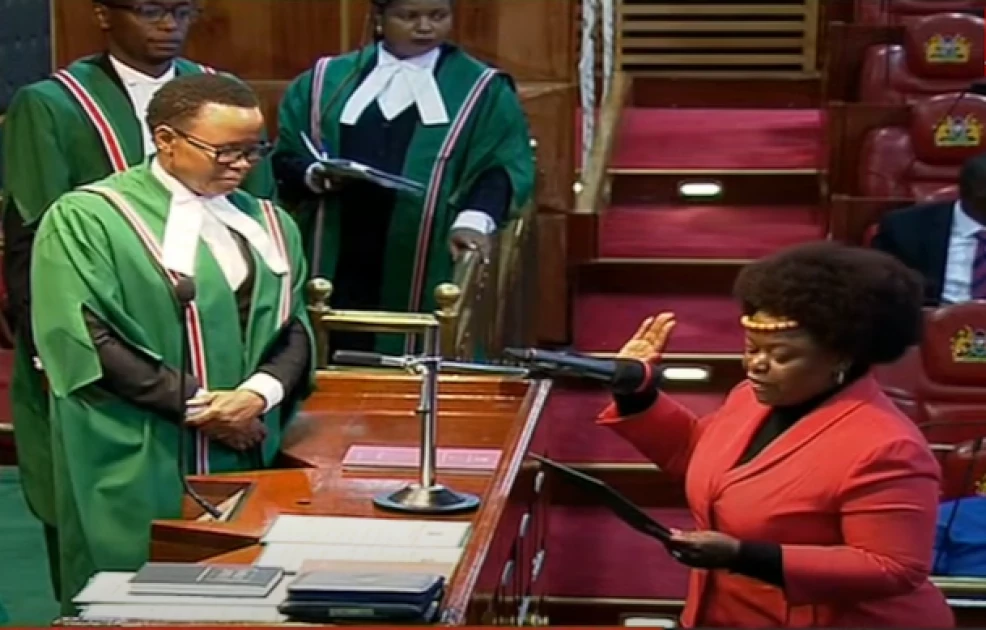Oath or Solemn Affirmation: The different modes of swearing-in MPs

A screengrab of Suba North MP Millie Odhiambo being sworn in on September 8, 2022.

Audio By Vocalize
Some members did not utter the words “swear in the name of the
Almighty God” and/or “So help me God.”
While some were honest mistakes; where some members just did not
see the last line of the oath, a few intentionally skipped the words “swear in
the name of the Almighty God” and/or “So help me God.”
The basic definition of an oath of office is “a promise made by an
individual that they will uphold and fulfill certain requirements and
obligations of a position that they were either elected or appointed to,” this
can be in government or organizations, as and when required.
Under the ‘Third Schedule: National Oaths and Affirmation’, the Constitution
of Kenya 2010 provides two ways through which one is sworn in. In this case,
for Members of Parliament, it’s either through swearing the oath or a solemn
affirmation.
If one choses to be sworn in by swearing the oath, he/she will
read it word for word as follows:
“I, (Name of the oath taker), having been elected a member of the
Senate/National Assembly do swear in the name of the Almighty God that I will
bear true faith and allegiance to the People and the Republic of Kenya; that I
will obey, respect, uphold, preserve, protect and defend this Constitution of
the Republic of Kenya; and that I will faithfully and conscientiously discharge
the duties of a member of Parliament. So help me God.”
In the case that the oath taker is a non-believer or does not want
to swear using a religious book, he/she will then choose to replace the words
“swear in the name of the Almighty God” with “solemnly affirm” and skip the
last sentence “So help me God.”
“I, (Name of the oath taker), having been elected a member of the Senate/National Assembly do solemnly affirm that I will bear true faith and allegiance to the People and the Republic of Kenya; that I will obey, respect, uphold, preserve, protect and defend this Constitution of the Republic of Kenya; and that I will faithfully and conscientiously discharge the duties of a member of Parliament.”
During Thursday’s inaugural sittings of the two Houses, where
administration swearing in was the main agenda, and thereafter election of Speakers
and their deputies, some rather unusual forms of oath taking were noticeable.
For instance, UDA Secretary General and newly nominated Senator
Veronica Maina, while taking her oath of office, did not lift the Bible/Quran
but instead held up her right hand, palm facing forward and read the solemn
affirmation.
Suba North MP Millie Odhiambo also held up her right hand, palm
facing forward, and proceeded to read the affirmation, replacing the words
“swear in the name of the Almighty God” with“solemnly affirm” and omitting the
sentence “So help me God” at the end.
Advocate Titus Makhanu notes that both methods are acceptable and
valid adding that there are no legal repercussions.
Similarly, the Chief Justice, Judges of the Supreme Court, Court
of Appeal and the High Court may choose to be sworn in by swearing the oath or a
solemn affirmation.
As for the President/Acting President and his/her Deputy,
according the Constitution, they are required to take both oath or solemn
affirmation of allegiance and oath or solemn affirmation of due execution of
office.


Leave a Comment